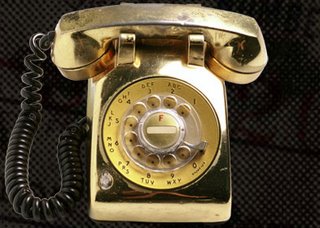Of course, that didn't happen.
Shortly after 3:00 PM, hotel staff discovered a fire in a ballroom being used, temporarily, for the storage of new guest-room furniture. The fire spread from the ballroom into the lobby of the hotel and casino and from there, smoke and fire gases spread through the high-rise portion of the building.
By the time search, evacuation, and rescue operations were concluded -- approximately 8:30 PM -- 97 people had died (including 17 hotel employees), and 146 were injured.
As might be expected, there were a "few" problems with the fire safety systems at the hotel:
- There was no automatic sprinkler coverage in the public areas of the hotel. The structure was partially protected by sprinklers, primarily in laundry and storage areas and in the trash chutes. Additional sprinkler heads had been added, but protected only the laundry storage room and maid's closet on each guest floor.
- The building's fire alarm system reportedly did not function. The NFPA investigation [link provided, but report is available to members only] of the fire involved more than 400 interviews -- not one person interviewed reported hearing the fire alarm system.
- There was no fire evacuation plan for the hotel.
- There was no employee policy for reporting fires.
- There was no employee training to complement the (non-existent) fire plan.
Furthermore, according to the timeline provided in the NFPA investigation report, there was a delay of approximately twenty minutes between discovery of the fire and the time it was reported to the Fire Department. The Fire Department responded within five minutes of their initial notification; had notifcation been made immediately upon discovery, the FD would have arrived about the time employees abandoned their attempts at putting out the fire, which was also about the time smoke first started moving into the foyer, lobby, and casino levels.
They would have been there before the fire flashed over, before it spread outside the ballrooms... before the fire had a chance to kill 97 people.
Subsequent investigation indicated the fire was caused by arson: the hotel had been involved in fairly acrimonious negotiations with the International Brotherhood of Teamsters, which represented about half the hotel''s employees. Less than ten minutes before the fire, the union members authorized a strike at midnight. Investigators believed the fire may have been intended to cause property damage, but certainly not injuries or deaths. Two hours before the fire, police had received a bomb threat against the hotel.
In February of 1988, a maintenance worker at the hotel admitted setting the fire and was sentenced to 30 years; three other employees were also charged.
Like most other major fires, the DuPont Plaza blaze did result in significant changes to fire codes around the country, including broadened sprinkler requirements, mandatory training for staff, and design and engineering changes to reduce the likelihood of fire. In a November 20, 2005, article in USA Today, reporter Gary Stoller cited a fire at the New York Hilton:
Hundreds of guests were evacuated from the 46-story hotel, Manhattan traffic was tied up for hours and 33 people were treated at the hospital for smoke inhalation. But, most important, no one died.
It's an increasingly common outcome of hotel fires these days.
Partly because automatic sprinklers are dousing or limiting the spread of fires before they become killers, the deadliest hotel fire in the USA since 1997 has been in single digits — six deaths. It was in a hotel without sprinklers.
Many hotel chains finally started retrofitting their properties with sprinklers, regardless of the cost. This had at least one unanticipated benefit: a 1990 federal law prohibits government employees traveling in the USA on business from staying in any hotel taller than three stories that lacks sprinklers. [A list of compliant hotels and motels may be found here.]
Marriott International has long been considered the lodging industry leader in fire sprinkler protection: virtually all properties bearing the Marriott name -- whether company-owned or franchised -- are fully sprinklered. Other well-known lodging chains like Ritz-Carlton, Hilton, Omni, Days Inn, Howard Johnson, Ramada, and Super 8, have varying levels of fully-sprinklered properties.
A sidebar to the USA Today story has this advice for travellers:
Before checking in, Roy Marshall asks if a high-rise hotel has automatic sprinklers. "If they don't, I don't stay there," says Marshall, former Iowa fire marshal and now director of a public interest group promoting fire safety in homes.
Some advice from experts on fire safety in hotels:
- Book a lower-floor room equipped with sprinklers. Many such hotels are listed at http://www.usfa.dhs.gov/applications/hotel/ [Link provided in the article was outdated, this is the correct link].For European hotels with sprinklers, check http://www.eurosprinkler.org/.
- Ask the desk clerk what the fire alarm sounds like. Ask for a room with a flashing alarm if you are deaf.
- Locate exits and stairways. Count the number of doors between them and your room. Locate fire alarms.
- If the door knob is hot, keep the door shut and place damp towels into the cracks around it. Open a window and turn on the bathroom vent if smoke enters the room.
- Escape by stairs, not an elevator. If you must escape through smoke, get low.
A few extra pointers:
- Make sure you know where your room key is. I generally place it in my shoes, which I keep right next to the bed (right next to my pants and shirt; I'm not planning on evacuating butt-nekkid).
- Carry a flashlight in your suitcase - it may provide enough light to help you escape.
- Know locations of fire extinguishers.
- Ask the clerk specifically how to call the Fire Department in an emergency (not all hotels have outside phone service for all guests; make sure you can access 9-1-1 or the local emergency number).





